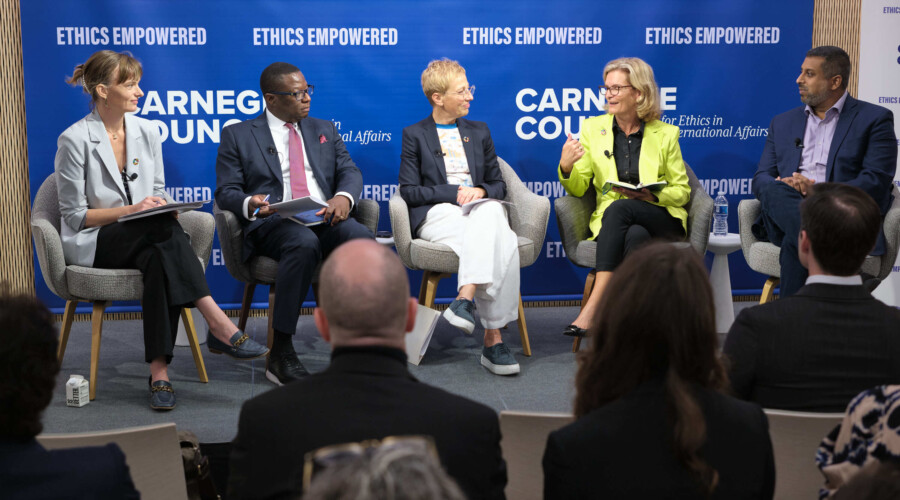Governments and corporations are under serious and growing threat from cyber attacks. Which do you favor: a strategy that seeks out hackers and punishes them at the risk of waging an undeclared cyberwar, or a more defensive strategy, as adopted by today’s Pentagon?
You may also like

APR 4, 2025 • Video
Unlocking Cooperation: Space Diplomacy
In this event, Northeastern University’s Ethics Institute partnered with Carnegie Council to host a convening on the future of international space governance, security, & sustainability.
Hosted by Ronald Sandler, Zhanna L. Malekos Smith, & Joel H. Rosenthal

NOV 13, 2024 • Article
An Ethical Grey Zone: AI Agents in Political Deliberations
As adoption of agentic AI increases, it is critical for researchers and policymakers to agree on ethical principles to inform governance of this emerging technology.
By Eleonore Fournier-Tombs

SEP 19, 2024 • Video
Unlocking Cooperation: AI for All
On the eve of the Summit of the Future, Carnegie Council and UNU-CPR hosted a special event exploring the implications of AI for the multilateral ...
Hosted by Eleonore Fournier-Tombs & Joel H. Rosenthal